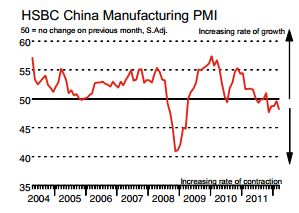Global food prices had their biggest drop in more than two years in May as the cost of dairy products slumped on increased supply, easing strain on household budgets. An index of 55 food items tracked by the United Nations’ Food & Agriculture Organization fell 4.2% to 203.9 points from 213 points in April, the Rome-based agency reported on its website. That was the biggest percentage drop since March 2010.
US Treasury Secretary Timothy F. Geithner and Federal Reserve Chairman Ben S. Bernanke are concerned about the European banking industry, Finnish Prime Minister Jyrki Katainen said after meeting the two US officials. Katainen said he discussed with Geithner and Bernanke the options for recapitalizing banks in trouble.
Two days after a senior government official said Spain’s access to debt markets was closed; the Treasury beat its €2 bn target (USD2.5 bn) at a bond sale, easing concern about financing the region’s third-biggest budget deficit.
The Bank of England left its stimulus plan on hold as the threat from above-target inflation overrode policy makers’ concerns about the risk to the UK from Europe’s debt crisis.
China cut interest rates for the first time since 2008, stepping up efforts to combat a deepening economic slowdown as Europe’s worsening debt crisis threatens global growth. The benchmark one-year lending rate will drop to 6.31% from 6.56% effective tomorrow. The one-year deposit rate will fall to 3.25% from 3.5%. Banks can also offer a 20% discount to the benchmark lending rate.
Japanese stocks rose, with the Topix Index capping the biggest three-day advance since March 2011, amid speculation policy makers in the US, China and Europe will take action to spur growth amid a deepening debt crisis.
Euro Dollar:
EURUSD (1.2561) The dollar firmed slightly against the euro Thursday after Federal Reserve Chairman Ben Bernanke’s keenly awaited testimony to Congress and China’s first interest rate cut in three years.
The euro was traded at $1.2561, down from $1.2580 at the same time Wednesday.
The dollar came under some pressure early on after China announced it would cut its key interest rates by a quarter of a point, amid slowing growth in the world’s second-largest economy.
But the greenback firmed after Fed Chairman Bernanke, in testimony to Congress, was fairly upbeat about “moderate” growth and gave no hint of fresh stimulus.
The Great British Pound
GBPUSD (1.5575) Sterling rose to a one-week high against the dollar on Thursday after the Bank of England opted not to extend its asset purchasing programme and China unexpectedly cut interest rates, boosting riskier currencies.
The BoE move was widely expected though a growing minority of economists had tipped another bout of quantitative easing following a run of weak data, including figures showing the recession in the UK was deeper than earlier thought.
China’s surprise move was announced at the same time as the BoE announced unchanged rates, as expected.
The pound was up 0.6 percent at $1.5575 having earlier hit $1.5601, its strongest since May 30
Asian –Pacific Currency
USDJPY (79.71) The dollar rose to its highest since May 25 against the yen on Thursday after a report showed the number of Americans seeking new jobless benefits fell last week for the first time since April, a reminder that the wounded labor market is still slowly healing.
The dollar rose as high as 79.71 yen and last traded at 79.63 yen, up 0.8 percent.
Before Bernanke began his testimony to Congress, trading had been influenced by China’s twin surprises on interest rates, cutting borrowing costs to combat faltering growth while giving banks additional flexibility to set deposit rates.
Decent demand at a Spanish bond auction and expectations that European policymakers may take further steps to support the global economy also led to demand for perceived riskier currencies such as the Australian dollar, which rose to a three-week high.
Gold
Gold (1588.00) futures have slumped, closing below $US1,600 an ounce for the first time in a week after US Federal Reserve chairman Ben Bernanke did not describe any new monetary easing measures while speaking to Congress.
Gold had rocketed past $1,600 an ounce last Friday after a poor US jobs report led some investors to believe further monetary easing might be on its way.
Such increased liquidity in the financial system can be a boon for gold, because investors tend to turn to gold and other precious metals to hedge the inflation that can result.
The most actively traded gold contract, for August delivery, on Thursday dropped $46.20, or 2.8 per cent, to settle at $1,588.00 a troy ounce on the Comex division of the New York Mercantile Exchange, the lowest settlement price since May 31.
Bernanke declined to directly address another round of quantitative easing, saying it was too soon to rule out any possible actions before the upcoming Fed meeting set for June 19-20.
Crude Oil
Crude Oil (84.82) prices have fallen slightly after Federal Reserve chairman Ben Bernanke dashed trader’s hopes for a quick stimulus to the frail US economy.
New York’s main contract, West Texas Intermediate crude for delivery in July slipped 20 US cents to close at $US84.82 a barrel.
In London trade, Brent North Sea crude for July settled at $US99.93 a barrel, down 71 US cents from Wednesday’s closing level.
Mr Bernanke’s failure to signal any new stimulus on the way for the US economy, in remarks Thursday to a Congressional panel, took the steam out of equity and oil markets.
Oil prices had been trading sharply higher, fuelled by China’s decision to lower key interest rates as growth slows in the world’s biggest energy-consuming country.
The price of oil has fallen sharply in the past three months, with New York’s main contract, West Texas Intermediate crude, down from $110 a barrel at the beginning of March on concerns about a global economic slowdown.
Algeria’s energy minister on Thursday called for OPEC to cut output at its meeting next week if members of the oil cartel had breached their limit.



